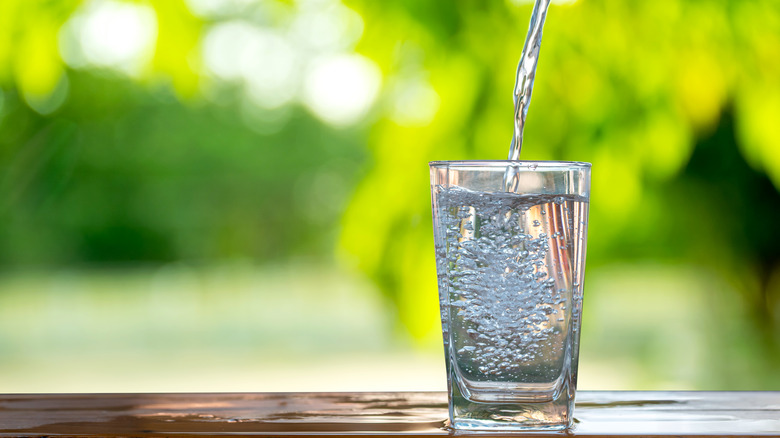The Real Difference Between Mineral Water And Spring Water
It seems like there is a type of water for every taste bud or preference. For some bottled water aficionados, mineral or spring water are the top choices. But what is the difference between the two, and are they interchangeable?
The first thing to note about bottled water in the United States is the quality doesn't vary whether it's mineral, spring, or another type of water. The U.S. Food and Drug Administration actually monitors all types of bottled water to ensure safety to consumers, and names each classification of water by its source.
Both mineral water and spring water come from an underground source, but they differ in the collection process. Spring water is only collected at the spring, where the water flows naturally to the surface — or through a tap directly into the underground formation that feeds the spring. Some brands of spring water, like Evian, say it is "filtered by nature," whereas other water, like tap water, undergoes a distillation process (via Evian).
Why mineral water is different than spring water
Mineral water has minerals and trace elements that come right from the underground source and cannot be added later, according to the FDA. Many mineral water sites are also geologically protected from contamination (via the Farmer's Almanac).
The minerals explain why each type or brand of mineral water may have a different taste — because each mineral water source has their own cocktail of minerals and trace elements (via My Recipes). Mineral water brands like Perrier or Topochico can be pricier than regular bottled water, but the added benefits of minerals like calcium and magnesium could be worth it to you (via Healthline).
So knowing the major differences — taste, natural elements, and how they are taken from the ground — which water should you choose? It depends on your personal opinion. You should also consult with a medical professional if you are concerned about the added minerals or unfiltered nature of mineral or spring water, as they could pose some possible health risks similar to drinking "raw water," according to Healthline.


